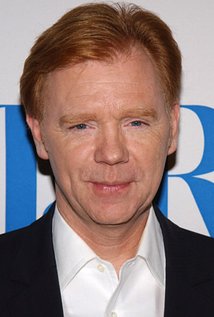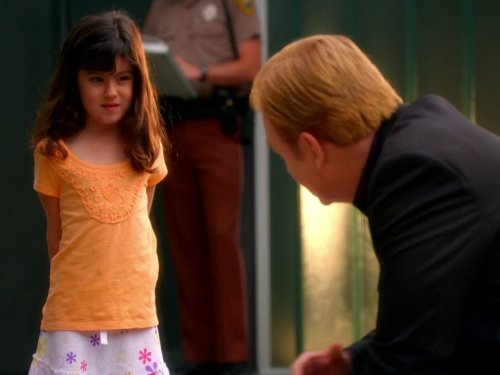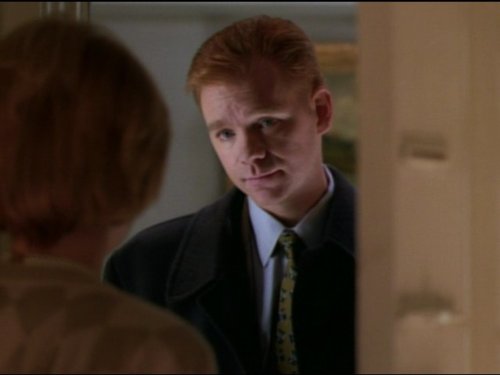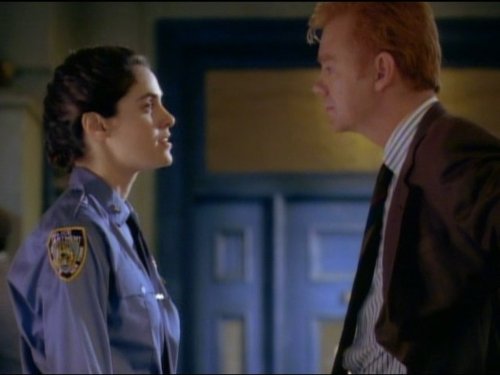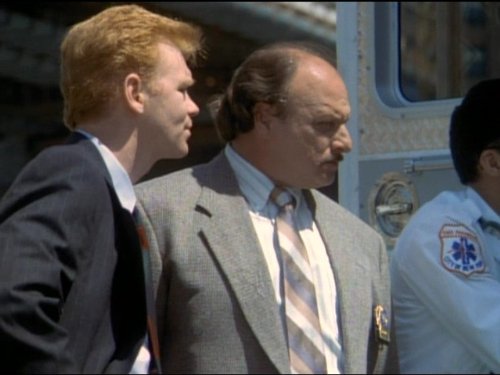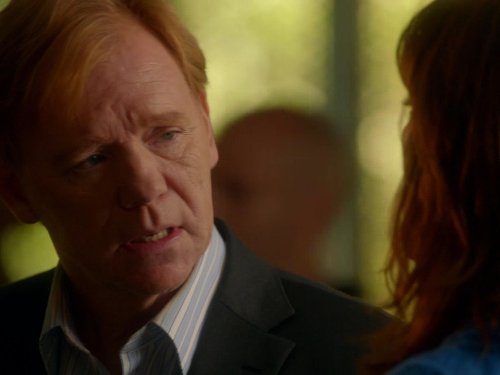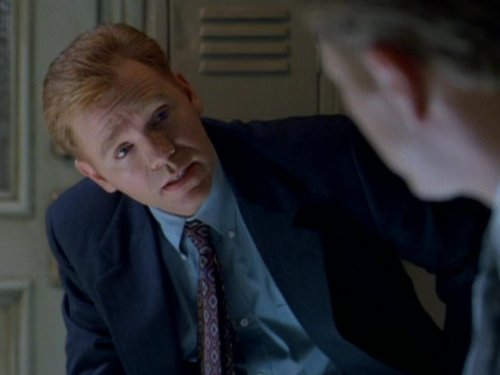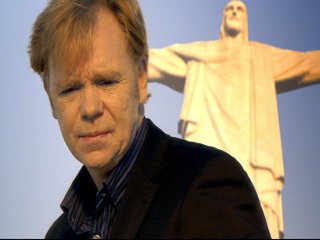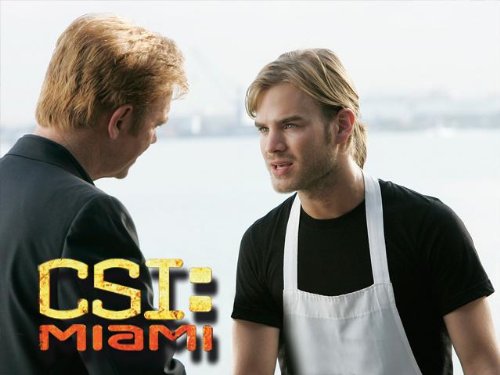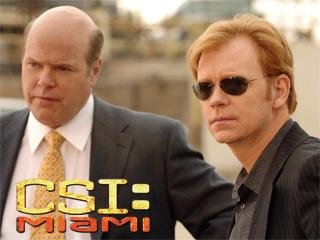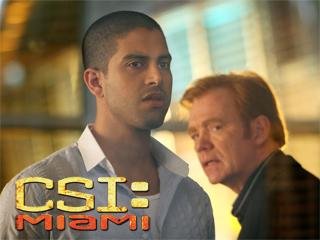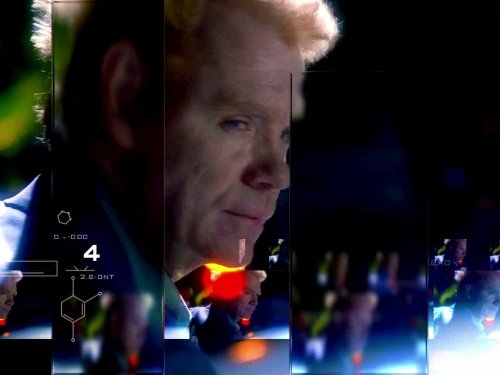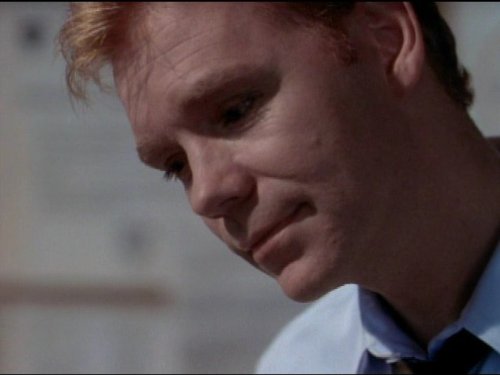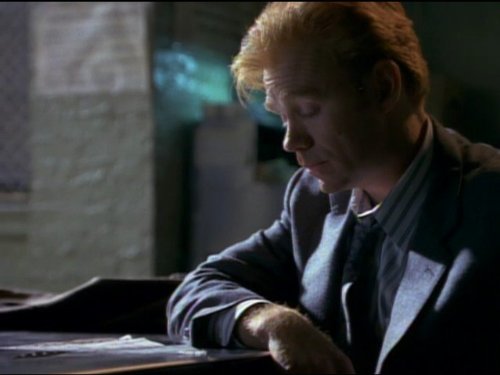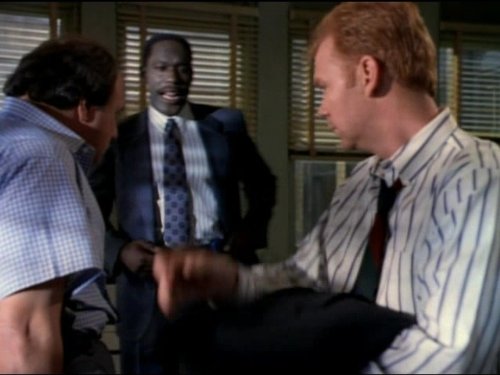His low-keyed intensity, deep-voiced somberness, pale skin, puffy-eyed baby face and crop of carrot-red hair are all obvious and intriguing trademarks of TV star David Caruso. A hugely popular item in the 1990s as a result of a smash crime series, he got way too caught up in all the hoopla surrounding him. Those working with him on the innovative cop series were not exactly unhappy when he decided to abandon ship after only one season in order to pursue movie star fame. Despite his own predictions, the show prospered quite well after the loss of his focal character...but it would be a major understatement to state that Caruso did not fare as well.TV to film crossover fame is tricky and David did not have the right formula to pull it off. Bad judgment calls, bad publicity after his departure from his TV series, a couple of poor film vehicles, and virtual unemployment in its wake eventually led him back to the small screen again a somewhat humbler person. Not many are given a second chance but Caruso, the enigmatic talent that he is, found gold a second time as (again) a wan, brooding lead in a hip, unconventional cop series.David Stephen Caruso was born in Forest Hills, Queens, New York, the son of Charles Caruso, a magazine and newspaper editor, and Joan, a librarian. The Irish Catholic youngster attended elementary and middle school at Our Lady Queen of Martyrs and then Archbishop Molloy High School, both in Queens.Following high school graduation in 1974, he toyed with some commercial work. A few years later he began to make a slight dent in films. He first appeared in Getting Wasted (1980) and Without Warning (1980), which led to a succession of secondary roles in such 80s movies as An Officer and a Gentleman (1982), First Blood (1982) (as a sheriff's deputy), Thief of Hearts (1984), Blue City (1986), China Girl (1987) and Twins (1988). But the break into full-fledged TV stardom proved elusive. It was argued that the thin and lanky actor was not handsome enough to become a leading man in film and didn't have the charisma credentials to carry a big movie.Making his unbilled debut in a daytime episode of "Ryan's Hope", TV proved to be a more inviting medium and police stories seemed to be the name of the game for him. He had a strong recurring role as a gang leader on Hill Street Blues (1981) and showed to good advantage in the series Crime Story (1986). This sudden notoriety on police TV gave way to some even stronger stuff in streetwise film crimers such as King of New York (1990) as a cop gone bad, and Mad Dog and Glory (1993), in which he earned excellent marks as a cynical urban cop. But his star-making role came via TV and his portrayal of Detective John Kelly the critically-acclaimed series NYPD Blue (1993). Audience adoration was immediate.His volatile but principled character on the gritty, boldly-written, unconventional show earned him impressive and sexy notices with a Golden Globe Award and Emmy nomination placed in his hands. Confident now that he could be a magnetic force in front of a movie camera, stories began to circulate that the instant fame had gone to his head, that he was moody, demanding and difficult on the set, and that he was quickly alienating not only his co-stars but the show's directors and writers.Ready to prove all those naysayers wrong about his chances in film, Caruso made tabloid headlines when he announced his decision to leave the highly-rated show after only one season (and only four episodes into the second season) to pursue film stardom. Rumors also bounced around that he left following unresolved salary negotiations. For whatever reason, he wasted no time in scouting out movie vehicles for himself. Again, he focused on his specialty -- crime thrillers. The first, Kiss of Death (1995), in which he played a petty thief trying to go straight, did not go over well box-office-wise despite its good reviews, and the second, Jade (1995), in which he portrayed a homicide detective, was a grisly, unappetizing thriller that was given the thumbs down almost immediately. As a comeuppance for coming up short, he was nominated for the dubious "Razzie" award as the "Worst New Star" of those two films. With no movie releases at all in 1996, by the time Cold Around the Heart (1997) was released, in which he played a jewel thief who is betrayed by his sexy partner-in-crime (Kelly Lynch), the TV star had lost all of his movie star momentum.In 1997, Caruso made an inauspicious return to the small screen as the placid title prosecutor Michael Hayes (1997), a law series, but it was a very short-lived experience. Audiences had become fickle and indifferent to his "heralded comeback". Finding a serious lack of offers, he returned to supporting others in films such as Russell Crowe in Proof of Life (2000), and copped a couple of leads for himself in such low-budgeted films as Session 9 (2001) and the Canadian film Black Point (2002).But in 2002, he found TV magic once again behind a badge as Lt. Horatio Caine in the popular CSI spin-off series CSI: Miami (2002). Strongly anchoring the show, which focuses more on crime methodology and whodunnit twists than character development, Caruso has nevertheless earned cult fame for his slick demeanor and deliberately slow speech patterns, reminding one of William Shatner's heady, methodical approach to Captain Kirk. Known for his deep, dry tones and parade of droll one-liners, many of which include him slipping on his dark shades during mid-sentence, he has been the subject of many a late-nite parody and satire.A difficult interviewee who has admitted to keeping his monumental ego in check since his return to TV, David has been married and divorced three times, which includes a brief 1980s union to actress Rachel Ticotin. He has a daughter, Greta, from that union. On the sly, Caruso was a co-owner of now long-defunct Steam, a clothing and furniture store in Miami, Florida. He and his current girlfriend (since 2005), Liza Marquez, have two children -- son Marquez Anthony and and daughter, Paloma Raquel.
Show less «

